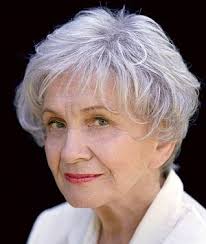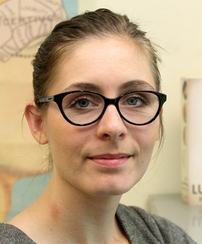Firstly, the Nobel Prize: I was so glad the committee chose to honour Alice Munro, who is now 82 and has been a wonderful writer for her whole career. I've been a fan of her writing since I first read one of her stories. She writes about ordinary lives, with immense insight and grace. And I'm particularly inspired by this award because, inevitably, a prize with the status of the Nobel honours both a writer and a life's mission, a way of seeing and bearing witness to the world.
Margaret Thatcher et al. famously invented the 'trickle-down effect', the idea that if the wealthy get more wealthy, everyone else does. While it became painfully clear that this wasn't the case in economics, I do think it's partly the case in literature. In effect, if Alice Munro wins the Nobel Prize, other people who think that what she's writing about is worthwhile, and who strive to write similar stories at whatever level and in whatever mode, get a small boost from her success. Other, less prominent stories about ordinary lives, about the small person trying to make a better existence for themselves, are more likely to be published and to receive grants and prizes and be sold by booksellers and get into the hands of readers. This is good for the readers, and certainly good for the people who devote their careers to trying to write such stories. In recognising Alice Munro, the Nobel Prize committee have simultaneously honoured a gifted artist, and sent an encouraging message to the world that writing about ordinary people and ordinary lives is important.
Meanwhile, Eleanor Catton, 28, has won the Man Booker Prize. I was cheered, and unexpectedly moved, by this - particularly reading this interview in which she addresses the issue of her age and gender and firmly defends her right to be taken seriously. It isn't that her age is irrelevant, she suggests, but that the book has to remain the centre of attention, has to be addressed in its own right. I'm so glad she has used her new-found influence to say this, because I think it's an important message for everyone to hear.
Eleanor Catton, of course, is in a unique position to make this argument because she has just been recognised once and for all in her own right. Simply put, she won the Booker Prize not because she's young but because she's good. But as Catton is probably well aware, her recognition by the Booker judges and the comments she chooses to make while in the spotlight directly affect the status of writers in their 20s and 30s everywhere.
I'm 24, and my age has been a prominent issue for the past eight years of my career and probably will be for another 10, and I find her win and her comments immensely cheering. On the one hand, I'm convinced that literature needs young voices, old voices, all voices with something to say - and I've certainly never tried to hide my age or pretend to be older in interviews. (The only time I have done so is when my agent and later my publishers were first considering my work, because I wanted to be absolutely sure in my own mind that the book was being considered on its own merits.) But even though age is nothing to hide or ignore, the argument Eleanor Catton makes, on behalf of us all, is that age, like gender, is a biographical detail: it is relevant, and it might add something to the book, but it does not define the book. The book defines the book.
So in congratulating both these writers, I'm also grateful for what their wins mean for readers and writers everywhere - and hopeful about the future. Both of these writers are artists with something important to say. So thank you Alice Munro and Eleanor Catton for encouraging all of us, at whatever level of fame or obscurity, by saying it.


 RSS Feed
RSS Feed
